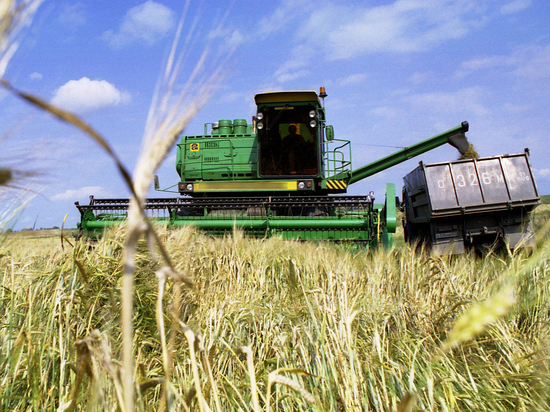Named the risks of introducing quotas for the supply of imported seeds to Russia
[ad_1]

The share of foreign in the domestic agricultural industry is going through the roof
If agriculture is faced with a shortage of seeds, in 2023 it will not avoid a drop in yields. This scenario is likely to come true if the Ministry of Agriculture introduces quotas for the supply of imported planting materials to Russia. This is the essence of the letter with which representatives of the agrarian sector addressed President Vladimir Putin. We are talking about a clear conflict of interests between the state and agricultural producers: each side looks at the situation with seeds “from its own belfry”.
According to the government project, until the end of 2022, the Ministry of Agriculture, the Ministry of Economic Development and the Federal Antimonopoly Service will be able to set quotas for the import of imported seeds, in particular seeds of wheat, potatoes, and corn. As explained in the agricultural department, thereby it will be possible to reduce dependence on seed materials, the import of which into the Russian Federation is gradually limited by unfriendly countries. “At the same time, a balanced approach will be applied that excludes risks for agriculture,” the Ministry of Agriculture says. – Quotas will be gradually introduced in respect of those crops for which there is a sufficiently high level of self-sufficiency.
In turn, the Russian Grain Union in its letter (signed also by producers of potatoes, vegetables and soybeans) recalls that the share of foreign seeds in the domestic agricultural industry is still high. For corn it is 55%, for potatoes – 65%, for sunflower – 75%, for vegetables – more than 80%, and for sugar beets – 97%. Not only that: foreign companies developed seeds by order of partners in Russia, that is, taking into account the agro-climatic conditions of its regions. If the departmental idea with quotas (their parameters have not yet been determined) is implemented, the industry runs the risk of facing extremely difficult consequences: yields will drop, production volumes will decrease, sanctions pressure on Russian agricultural exports will increase.
“In fact, the only crop that uses domestic seeds today is soft winter wheat with a share of about 97%,” says Yaroslav Ostrovsky, a specialist in the Strategic Research Department at Total Research. – After the collapse of the USSR, the seed industry practically ceased to exist. Now, thanks to the federal program, it is slowly recovering, which will take 10 to 15 years. We need to build the whole system anew, and taking into account the advanced technologies that have stepped far forward over the past 30 years.”
The program of import substitution in the agro-industrial complex is hampered by a number of factors, including the weakness of managerial personnel. In December 2019, the Ministry of Agriculture received a harsh rebuke from Federation Council Chairman Valentina Matviyenko, who criticized the department for inaction on the issue of domestic seed production. But there are no visible results to this day. At the same time, in Ostrovsky’s opinion, the Ministry of Agriculture is unlikely to choose a suicidal scenario and introduce quotas for all imported seeds. Farmers’ concerns about yield cuts in 2023 are clearly exaggerated.
“The conflict of interest is obvious,” says Nikita Maslennikov, a leading expert at the Center for Political Technologies. – On the one hand, it is necessary to reduce dependence on foreign seeds, in particular, for durum wheat and vegetables, both greenhouse and open ground. The Ministry of Agriculture needs to build a long-term strategy. On the other hand, agrarians have to solve their production tasks in real time: this is the sowing campaign, and harvesting, and calculating the prospects for exports, shackled by all sorts of restrictions, such as an increase in freight prices, refusal of shipowners to work with Russian companies.”
With regard to specific quotas, according to the expert, one should not rush to introduce them. It is possible to draw up a schedule, say, for the medium term, starting from next year, having previously calculated the potential costs, the cost of producing domestic seeds. As Maslennikov notes, the other day farmers got another reason for hassle. We are talking about the initiative of the Ministry of Finance, which proposed the introduction of uniform customs export duties on all categories of mineral fertilizers – nitrogen, potash and phosphate. Siluanov’s department motivates this by the intention to collect more than 100 billion rubles of additional income annually to the budget. But the question arises – what will happen to domestic prices then? After all, manufacturers, having lost some share of export earnings, will surely “win back” on them, Maslennikov sums up.
[ad_2]
Source link






